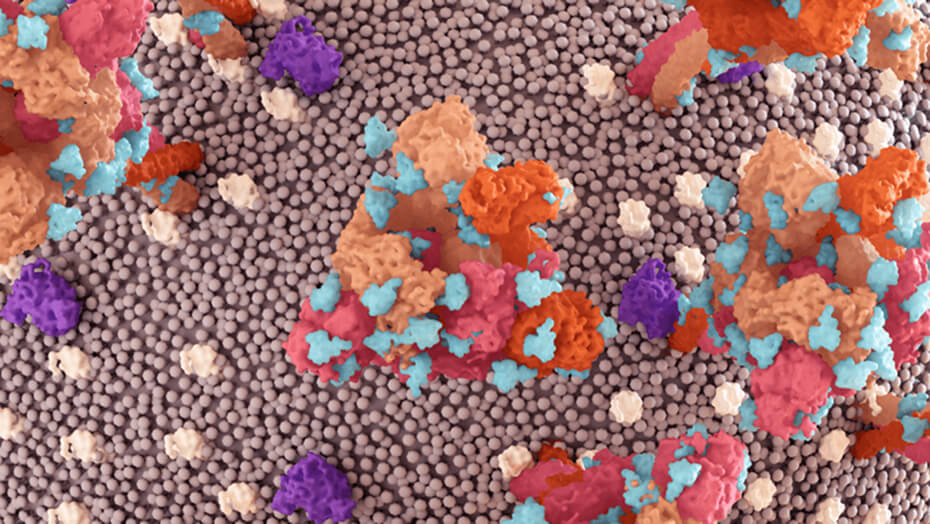Decoding Chronic Inflammation: Your Health's Hidden Compass
How is chronic inflammation speeding up your aging pace? And can this be reversed? Read here and find out.

Inflammation - Both Friend and the Enemy?
Inflammation is a fundamental and complex biological response, serving as the body's natural defense mechanism against injury, infection, and various forms of damage. However, it's important to recognize that not all inflammation is beneficial for us. When the body encounters infection or tissue damage, immune cells are recruited to the affected area to resolve the issue. These immune cells release inflammatory molecules, which signal our immune system to engage and combat the threat. This orchestrated process is known as acute inflammation – a short-term, targeted response that acts as our ally.
Once the problem is successfully addressed, inflammation must be resolved to allow the body to restore its balance. However, if it persists beyond its purpose, it takes on a different, more insidious form known as chronic inflammation – a relentless enemy. While it may not manifest as aggressively as acute inflammation, it poses a significant long-term threat. Imagine it as a smoldering fire, continually releasing inflammatory molecules into the bloodstream, even when there's no immediate threat to combat. Over time, this prolonged state of low-grade inflammation can prove detrimental to your health, contributing to the development of numerous diseases.
Inflammaging - Paving the Path to Disease Development
Chronic inflammation is a natural occurrence in the context of aging. As we navigate the inevitable process of getting older, chronic inflammation gradually becomes a more prominent aspect of our biological landscape. This is expected, as it results from a combination of factors that accumulate over the course of our lifetime. Exposure to environmental toxins, chronic infections, cellular senescence, and the gradual weakening of our immune system all contribute to the mounting inflammation. This phenomenon, where the aging process is characterized by elevation in the levels of chronic inflammation, is referred to as inflammaging and has recently gained official recognition as a hallmark of aging.
Another aspect of growing older is the gradual decline of our immune system's effectiveness, rendering us more susceptible to various diseases. This vulnerability is intimately intertwined with chronic inflammation, which plays a pivotal role in the gradual erosion of our body's defenses. Consequently, chronic inflammation emerges as a substantial risk factor for both morbidity and mortality among the elderly population.
Chronic inflammation isn't a disease itself but rather a mechanistic process that sets the stage for disease development. It is implicated in a wide array of conditions, including autoimmune disorders, cardiovascular diseases, metabolic syndromes, neurodegenerative conditions, and cancer. Alarmingly, chronic inflammatory diseases are responsible for 3 out of every 5 global deaths, making them the most significant threat to human health, as per the World Health Organization (WHO).
However, it's important to acknowledge that these threats aren't confined to the elderly alone. Even among younger individuals, chronic inflammation can take root and silently advance, leading to serious health problems. This is one of the greatest dangers of chronic inflammation – its ability to go unnoticed. It slowly builds up, acting like the hidden fuse on dynamite. You may not see it burning, but the explosion it leads to can be detrimental.
Chronic Inflammation - a Powerful and Responsive Biomarker
While chronic inflammation is influenced by factors such as genetics, epigenetics, and the environment, there's one crucial element that stands under our control - our lifestyle choices. Diet, exercise, sleep, and stress management - these factors influence our internal environment significantly, playing a pivotal role in either promoting or mitigating chronic inflammation. Unhealthy lifestyle choices progressively create a hostile inner environment that not only fuels inflammation but also lays the groundwork for various diseases. This environment takes time to build, and elevated levels of chronic inflammation can serve as a red flag for health risks, often years before any disease manifests. This highlights the value of chronic inflammation as an early indicator of potential future health risks.
.png?alt=media&token=c7e76bdd-346e-412f-b65b-218b50ca6765)
In essence, chronic inflammation functions as a compass for our health, pointing towards the collective impact of our choices, both significant and subtle. It serves as a valuable indicator of our overall well-being. Given that chronic inflammation is a hallmark of aging, heightened levels resulting from unhealthy lifestyle choices point to a higher biological age and a more accelerated aging process. Fortunately, this process is reversible.
Managing Chronic Inflammation for a Healthier Tomorrow
We have the power to mitigate some of the harmful effects of chronic inflammation, especially those caused by our lifestyle choices. By embracing healthier habits, we have the ability to recalibrate our health compass, reduce chronic inflammation, and steer toward a healthier future. Nonetheless, there are limits to what we can reverse independently.
As mentioned, chronic inflammation is shaped by factors such as genetics, epigenetics, and environmental elements, which often lie beyond our immediate control. Consider, for instance, hormonal imbalances - an influential contributor to chronic inflammation. During menopause, women frequently experience elevated levels of inflammation, resulting in a sudden increase in their biological age. Here, hormonal replacement therapy has proven highly beneficial in addressing this issue. In other cases, individuals may carry genetic predispositions for conditions like cardiovascular disease. These individuals require a personalized approach and medical therapies tailored to their specific needs.
Nevertheless, we have the capacity to regulate our chronic inflammation levels, either independently or with the guidance of healthcare professionals, facilitating a healthier aging process.
Decoding Chronic Inflammation With the Help of Glycans
Measuring chronic inflammation on a molecular level presents a unique challenge. While traditional markers like C-Reactive Protein (CRP) and inflammatory cytokines offer valuable insights, they have shorter half-lives that make them better suited for acute inflammation assessments. However, the story changes when we turn our attention to Immunoglobulin G (IgG) antibodies.
IgG antibodies play a pivotal role in our immune system, acting as functional effectors that modulate various immune response pathways by binding to specific receptors on the surface of immune cells. In order to perform these functions, IgG antibodies require the attachment of glycans to their structure.
Glycans, complex sugar structures, become integral components of IgG antibodies during their production. Unlike genes providing templates, glycans' composition results from a complex interplay of genetics, epigenetics, and environmental factors. Human IgG can feature over 24 distinct glycan structures, each uniquely influencing its functionality. Glycans that drive IgG to activate immune pathways are considered pro-inflammatory, while those that don’t are considered anti-inflammatory. Collectively, these diverse IgG glycans form the IgG glycome, offering insights into IgG's inflammatory status. What sets IgG antibodies apart from other markers is their longevity in the bloodstream. With a half-life of approximately 3 weeks, IgG allows a unique glimpse into the dynamics of chronic inflammation.
As aging progresses, the composition of IgG N-glycome undergoes a significant shift, transitioning IgG functionality from an anti-inflammatory to a pro-inflammatory state. Lifestyle habits can play a pivotal role in accelerating or reversing this transformation. This unique interplay makes the IgG glycome an exceptional biomarker for biological aging. It not only mirrors chronic inflammation levels and overall health but also responds to interventions and lifestyle changes, providing valuable insights into our journey toward healthier aging.


